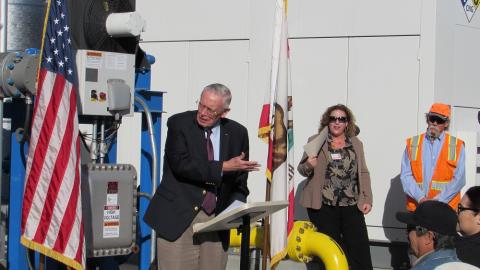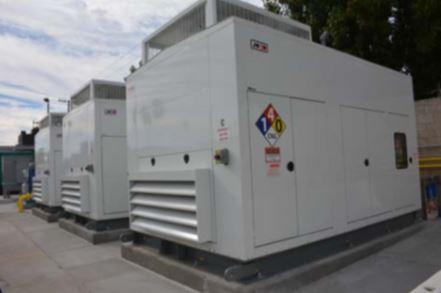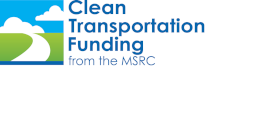
MSRC Vice-Chair Larry McCallon joined Omnitrans executives and other local leaders from San Bernardino to celebrate Omnitrans’ new CNG fueling station at the end of November. Omnitrans unveiled the state-of-the-art compressed natural gas fueling equipment at its West Fifth Street facility, replacing liquefied natural gas equipment installed in 2002.
At the press conference, Larry McCallon said, “Omnitrans can expect to remove 11,500 tons of air pollution from the skies of Southern California by transitioning to compressed natural gas.”
Sam Spagnolo, Rancho Cucamonga Councilman and Interim Vice-Chair of the Omnitrans Board of Directors said, “We applaud this demonstration of leadership in clean fuel technology. We are proud of our 100 percent CNG fleet of 176 buses and the fact that we are transitioning our Access fleet to CNG. Together we are making a difference in the fight for cleaner air in our region.”
The switch is projected to save Omnitrans $1.6 million annually in fuel costs compared to LNG. The San Bernardino site includes three CNG compressors and each bus takes less than eight minutes to fuel. Omnitrans provides more than 12 million passenger trips per year in San Bernardino.
Transitioning from liquefied natural gas to compressed natural gas was a collective effort spearheaded by the Center for Community Action and Environmental Justice, a Jurupa Valley-based nonprofit focused on addressing health hazards in the region.
Penny Newman, CCAEJ founder and executive director, called the project a “victory” and “a step forward” in her group’s relationship with the transportation provider.
The CNG system works by having gas enter the property via an underground natural gas pipeline. A dryer removes moisture for vehicle use and then the gas is compressed for fueling and filtered to minimize contaminants. Every day, three compressors produce the equivalent of 6,500 gallons of gasoline.

System safety features include 24/7 local and remote monitoring systems, methane detection systems, automatic and manual emergency shutdown, fail safe isolation valves, and pressure relief devices. Daily inspections are done by trained Omnitrans staff. GP Strategies conducts weekly inspections.
In addition to the MSRC, funding for the $8.5 million project came from the Federal Transit Administration, the South Coast Air Quality Management District and local funds.
The MSRC is also providing funding to expand Omnitrans’ station in Montclair, and for installation of a new CNG station at 234 South I Street, as well as nearly $1 million dollars to repower 63 buses with “near zero” emission natural gas engines.
